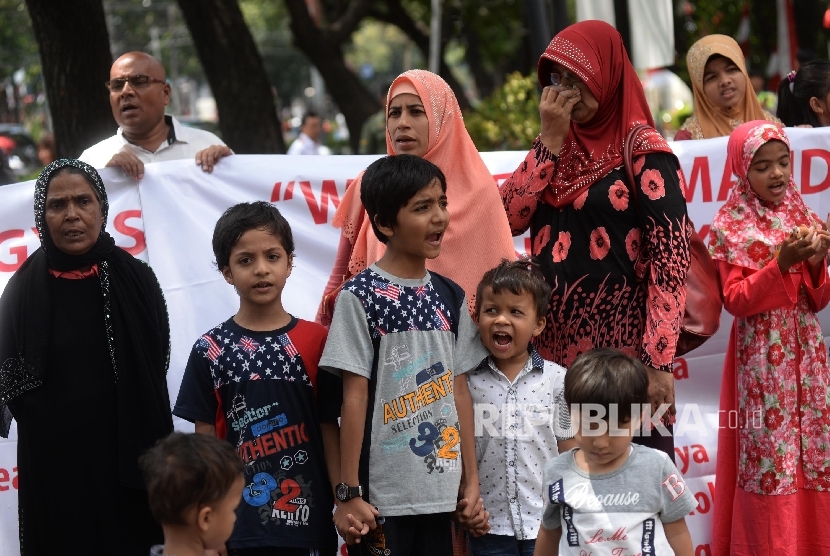REPUBLIKA.CO.ID, COX'S BAZAR -- Bangladesh border guards on Monday moved to push back thousands of Rohingya Muslims fleeing the worst violence in Myanmar in five years, with 104 people killed and the United Nations and aid groups forced to pull out some staff.
The flight of large numbers of Muslim Rohingya and Buddhist civilians from the northern part of Myanmar's Rakhine state was triggered by coordinated attacks by Rohingya insurgents, wielding sticks, knives and crude bombs, on 30 police posts and an army base on Friday.
The violence marks a dramatic escalation of a conflict that has simmered in the region since October, when a similar but much smaller series of Rohingya attacks on security posts prompted a brutal military response dogged by allegations of human rights abuses.
The treatment of about 1.1 million Muslim Rohingya in mainly Buddhist Myanmar has emerged as the biggest challenge for national leader Aung San Suu Kyi, who has condemned the attacks and commended the security forces.
The Nobel peace laureate has been accused by some Western critics of not speaking out on behalf of the long-persecuted minority, and of defending the army's sweep after the October attacks.
The Rohingya are denied citizenship in Myanmar and classified as illegal immigrants, despite claiming roots there that go back centuries, with communities marginalized and occasionally subjected to communal violence.
Also read: At least 12 dead in Muslim insurgent attacks in Myanmar
Bangladesh regards them as illegal migrants from Myanmar and has said it will not allow any refugees in.
Nevertheless, thousands of Rohingya - mostly women and children - fleeing the violence sought to ford the Naf river separating Myanmar and Bangladesh and cross the land border.
On Monday, Bangladesh border guards shouted "move, move" to push back refugees stranded in no man¿s land near the Bangladeshi village of Gumdhum. Over the weekend, Reuters saw Rohingya rushing to Gumdhum after gun shots rang out on the Myanmar side.
"How can we go back there? Just to get killed?" asked Rohingya Mujibur Raham standing on the border.
Rohingya have been fleeing Myanmar since the early 1990s and there are now about 400,000 in Bangladesh. Some of them, in the Bangladeshi district of Cox's Bazar, said police had threatened them with arrest if they helped new arrivals.
Nevertheless, an estimated 3,000 people have crossed into Bangladesh in the past few days, the United Nations High Commissioner for Refugees (UNHCR) told Reuters.
Aid groups are scrambling to help.
"We are accommodating new people in our current program," said a senior official from the group Action Against Hunger who said the group was feeding about 500 new refugees.
The UNHCR said it was helping the new refugees with dry food and medical supports.


